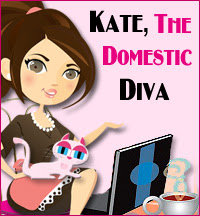If you've ever paid off one credit card with another, thrown out a bill before opening it, or convinced yourself that buying at a two-for-one sale is like making money, then this silly, appealing novel is for you. In the opening pages of Confessions of a Shopaholic, recent college graduate Rebecca Bloomwood is offered a hefty line of credit by a London bank. Within a few months, Sophie Kinsella's heroine has exceeded the limits of this generous offer, and begins furtively to scan her credit-card bills at work, certain that she couldn't have spent the reported sums.
In theory anyway, the world of finance shouldn't be a mystery to Rebecca, since she writes for a magazine called Successful Saving. Struggling with her spendthrift impulses, she tries to heed the advice of an expert and appreciate life's cheaper pleasures: parks, museums, and so forth. Yet her first Saturday at the Victoria and Albert Museum strikes her as a waste. Why? There's not a price tag in sight.
It kind of takes the fun out of it, doesn't it? You wander round, just looking at things, and it all gets a bit boring after a while. Whereas if they put price tags on, you'd be far more interested. In fact, I think all museums should put prices on their exhibits. You'd look at a silver chalice or a marble statue or the Mona Lisa or whatever, and admire it for its beauty and historical importance and everything--and then you'd reach for the price tag and gasp, "Hey, look how much this one is!" It would really liven things up.
Buy "Confessions of a Shopaholic" from Amazon.com.
Buy "Confessions of a Shopaholic" from Amazon.com.
What’s a round-the-world honeymoon if you can’t buy the odd souvenir to ship back home? Like the twenty silk dressing gowns Becky found in Hong Kong…the hand-carved dining table (and ten chairs) from Sri Lanka…the, um, huge wooden giraffes from Malawi (that her husband Luke expressly forbade her to buy)… Only now Becky and Luke have returned home to London and Luke is furious. Two truckloads of those souvenirs have cluttered up their loft, and the bills for them are outrageous. Luke insists Becky go on a budget. And worse: her beloved best friend Suze has found a new best friend while Becky was away. Becky’s feeling rather blue—when her parents deliver some incredible news. She has a long-lost sister! Becky is thrilled! She’s convinced her sister will be a true soulmate. They’ll go shopping together, have manicures together.…Until she meets Jessica for the first time and gets the shock of her life. Surely Becky Bloomwood’s sister can’t…hate shopping?
Buy "Shopaholic & Sister" From Amazon.com
Buy "Shopaholic & Sister" From Amazon.com
Gold Fever: 1850. Pampered New Englander Lucy Schneider finds herself on a wagon train bound for California, alongside her gold-hungry husband and coldhearted brother-in-law. When her husband dies, Lucy wants to return home, but she cannot abandon her young stepson. Fortunately Lucy has an admirer and protector in ruggedly handsome Clint Palance, a former trapper and Indian scout. She continues the journey, yet more misfortunate lies ahead as the pioneers ford rivers, battle Indians, and endure harsh weather. With California just around the bend, Lucy must say farewell to Clint just as their relationship has begun. Will Lucy ever be reunited with Clint? Or must she return to her former life in Boston, forsaking forever the beautiful West she has grown to love?
In a suburban Atlanta neighborhood where divorce is as rampant as kudzu, Mary Bliss McGowan doesn't notice that her own marriage is in trouble until the summer night she finds a note from her husband, Parker, telling her he's gone -- and has taken the family fortune with him.
Stunned and humiliated, a desperate Mary Bliss, left behind with her seventeen-year-old daughter, Erin, and a mountain of debt, decides to salvage what's left of her life by telling one little bitty lie ... that starts to snowball until Parker turns up dead. Or does he?
Little Bitty Lies is a comic Southern novel not only about one woman's lifelong quest for home but also about all the important things in life: marriage and divorce, mothers and daughters, friendship and betrayal, small-town secrets -- and the perfect recipe for chicken salad.
Buy "Little Bitty Lies" From Amazon.com
In her debut novel of what she calls “spirited romance for the Jane Austen soul,” author Linore Rose Burkard tells the intriguing story of Miss Ariana Forsythe, a young woman caught between her love for a man who doesn’t share her faith and her resolution to marry only a fellow believer in Christ.
Trouble at home sends the young woman to her aunt’s townhome in the fashionable Mayfair district of London. There she finds worse troubles than those that prompted her flight from home. Ariana is soon neck–deep in high society and at odds with Mr. Phillip Mornay, London’s current darling rogue. Then a scandal changes Ariana forever. Her heart, her faith, and her future are all at stake in an unexpected adventure that gains even the Prince Regent’s attention.
Will Ariana’s faith survive this test? And what about her heart? For it’s Ariana’s heart that most threatens to betray the truths she has always believed in. When she finds herself backed against a wall, betrothed to the wrong young man, how can it ever turn out right?
Buy "Before The Season Ends" From Amazon.com
Ever wonder why women can brush their teeth while walking and talking on various subjects while men generally find this very difficult to do? Why 99 percent of all patents are registered by men? Why stressed women talk? Why so many husbands hate shopping? According to Barbara and Allan Pease, science now confirms that "the way our brains are wired and the hormones pulsing through our bodies are the two factors that largely dictate, long before we are born, how we will think and behave. Our instincts are simply our genes determining how our bodies will behave in given sets of circumstances." That's right: socialization, politics, or upbringing aside, men and women have profound brain differences and are intrinsically inclined to act in distinct--and consequently frustrating--ways.
The premises behind Why Men Don't Listen and Women Can't Read Maps is that all too often, these differences get in the way of fulfilling relationships and that understanding our basic urges can lead to greater self-awareness and improved relations between the sexes. The Peases spent three years researching their book--traveling the globe, talking to experts, and studying the cutting-edge research of ethnologists, psychologists, biologists, and neuroscientists--yet their work does not read a bit like "hard science." In fact, the authors go to considerable lengths to point out that their book is intended to be funny, interesting, and easy to read; in short, this is a book whose primary purpose is to talk about "average men and women, that is, how most men and women behave most of the time, in most situations, and for most of the past."
Why Men Don't Listen, therefore, deals largely in generalizations, and this is bound to alienate some readers. "We don't beat around the bush with suppositions or politically correct clichés," the Peases claim. Those up for an irreverent and unapologetic take on why men and women just can't help themselves sometimes may just decide to read on. --Svenja Soldovieri --This text refers to an out of print or unavailable edition of this title.
Buy "Why Men Don't Listen and Women Can't Read Maps" From Amazon.com
Buy "Why Men Don't Listen and Women Can't Read Maps" From Amazon.com
























